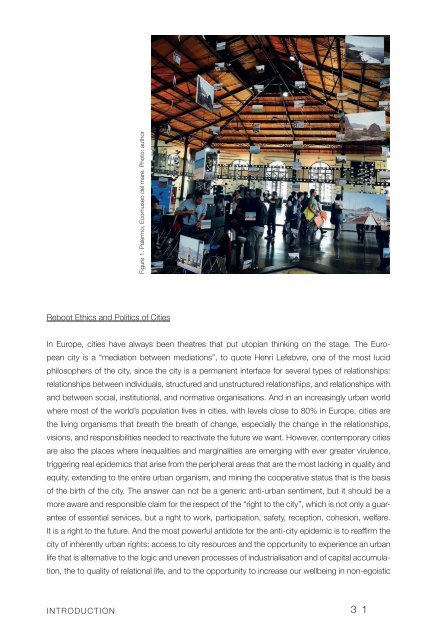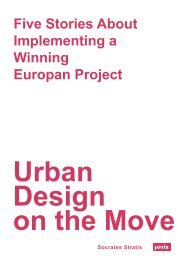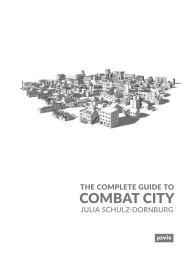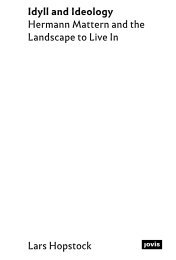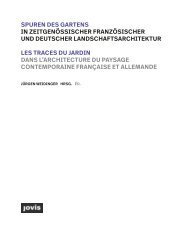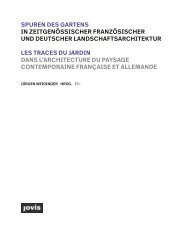Dynamics of Periphery
978-3-86859-511-6 https://www.jovis.de/de/buecher/vorschau/product/dynamics_of_periphery.html
978-3-86859-511-6
https://www.jovis.de/de/buecher/vorschau/product/dynamics_of_periphery.html
Create successful ePaper yourself
Turn your PDF publications into a flip-book with our unique Google optimized e-Paper software.
Figure 1. Palermo, Ecomuseo del mare. Photo: author<br />
Reboot Ethics and Politics <strong>of</strong> Cities<br />
In Europe, cities have always been theatres that put utopian thinking on the stage. The European<br />
city is a “mediation between mediations”, to quote Henri Lefebvre, one <strong>of</strong> the most lucid<br />
philosophers <strong>of</strong> the city, since the city is a permanent interface for several types <strong>of</strong> relationships:<br />
relationships between individuals, structured and unstructured relationships, and relationships with<br />
and between social, institutional, and normative organisations. And in an increasingly urban world<br />
where most <strong>of</strong> the world’s population lives in cities, with levels close to 80% in Europe, cities are<br />
the living organisms that breath the breath <strong>of</strong> change, especially the change in the relationships,<br />
visions, and responsibilities needed to reactivate the future we want. However, contemporary cities<br />
are also the places where inequalities and marginalities are emerging with ever greater virulence,<br />
triggering real epidemics that arise from the peripheral areas that are the most lacking in quality and<br />
equity, extending to the entire urban organism, and mining the cooperative status that is the basis<br />
<strong>of</strong> the birth <strong>of</strong> the city. The answer can not be a generic anti-urban sentiment, but it should be a<br />
more aware and responsible claim for the respect <strong>of</strong> the “right to the city”, which is not only a guarantee<br />
<strong>of</strong> essential services, but a right to work, participation, safety, reception, cohesion, welfare.<br />
It is a right to the future. And the most powerful antidote for the anti-city epidemic is to reaffirm the<br />
city <strong>of</strong> inherently urban rights: access to city resources and the opportunity to experience an urban<br />
life that is alternative to the logic and uneven processes <strong>of</strong> industrialisation and <strong>of</strong> capital accumulation,<br />
the to quality <strong>of</strong> relational life, and to the opportunity to increase our wellbeing in non-egoistic<br />
INTRODUCTION<br />
31


